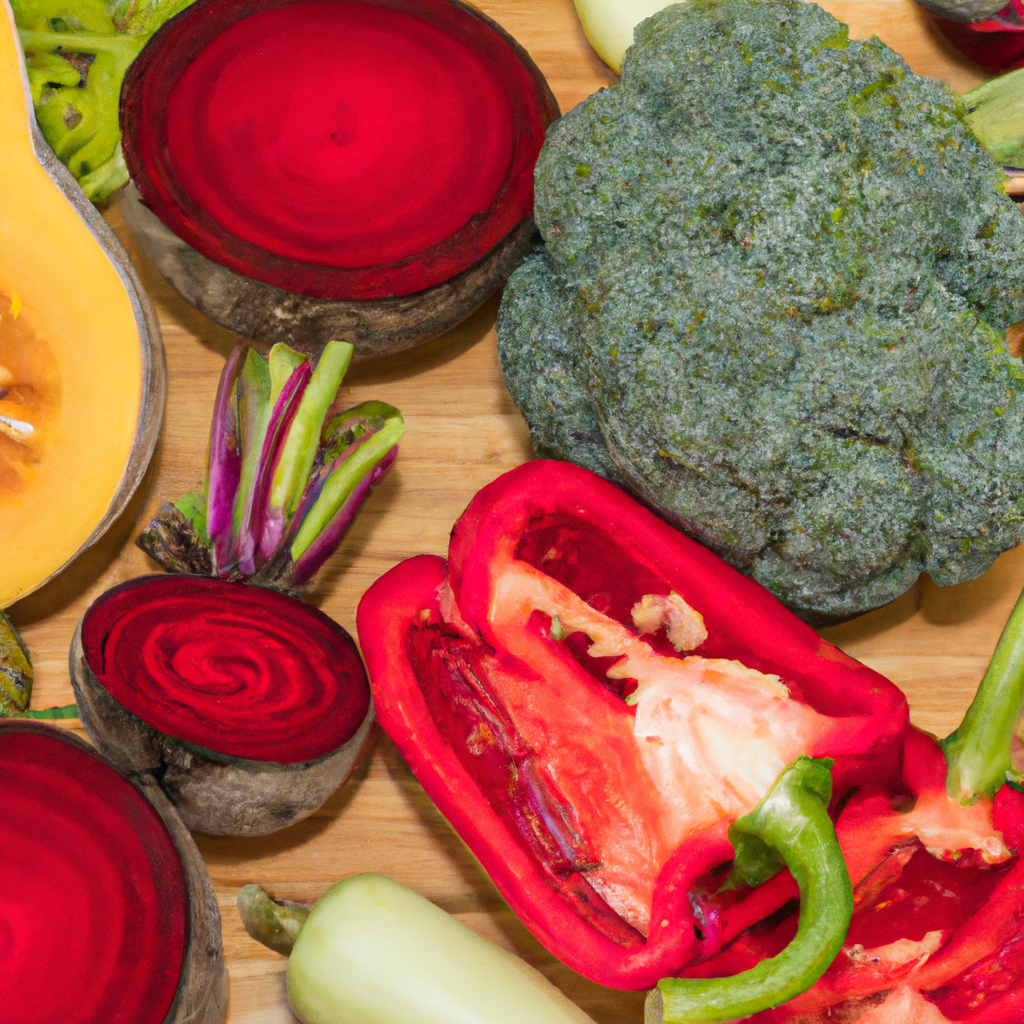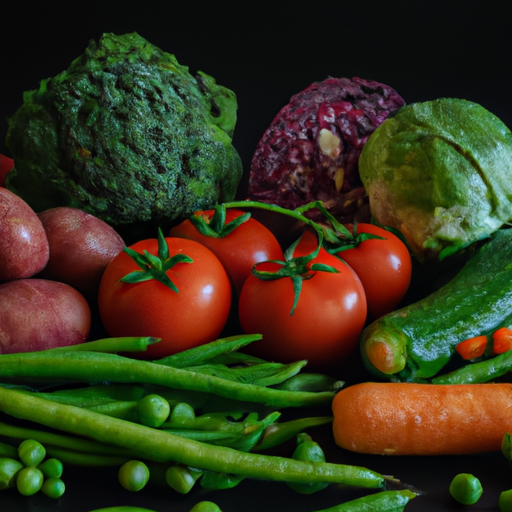Preserving a healthy diet is critical for the maintenance of a healthy body. With various nutrients and minerals available in food, it is important to eat a variety of vegetables to maintain balance. But do you know which vegetables are particularly beneficial? Vegetables that have anti-inflammatory properties are especially beneficial to anyone looking to improve their health. In this article, we will look at which vegetables can be included in a balanced diet and why they are so beneficial.
1. Unlocking the Power of Anti-Inflammatory Vegetables
Understanding Inflammation: Inflammation is the body’s natural response to injury or illness. It is an immune reaction to protect the body from bacteria, viruses, and other harmful organisms. Unfortunately, too much inflammation can become harmful, and can lead to chronic disorders such as allergies, asthma, Crohn’s disease, and rheumatoid arthritis.
Letting Vegetables Fight Back: Fortunately, we can counter this inflammation with one of nature’s solutions: vegetables. Vegetables are full of anti-inflammatory components, such as omega-3 fatty acids, phytonutrients, and antioxidants. When added to a healthy diet, these compounds can reduce inflammation and its adverse effects. Here are some simple and healthy ways to unlock the power of anti-inflammatory vegetables:
- Incorporate leafy greens, kale, spinach, broccoli, and other cruciferous vegetables into your daily diet.
- Opt for lycopene-rich tomatoes and other red-hued vegetables.
- Experiment with a variety of herbs and spices that are known to reduce inflammation, such as ginger, cayenne, and turmeric.
- Snack on carrots, sweet potatoes, pumpkin, and squash, which are all packed with beta carotene and Vitamin A.
2. The Benefits of a Plant-Based Diet
As the popularity of plant-based diets rise, people of all ages are now recognizing the incredible health, environmental and ethical benefits of forgoing animal products and embracing a vegan lifestyle full-time.
A plant-based diet is beneficial for both your own health as well as the environment. There are numerous advantages to eating vegan, such as:
- Weight Loss – A plant-based diet is naturally lower in unhealthy fats and calories while being higher in fiber compared to a traditional diet, allowing you to reach and maintain a healthy weight.
- Heart Health – Eating a plant-based diet can reduce your blood pressure, lower your bad cholesterol and help you to avoid coronary artery disease, thanks to the absence of saturated fats.
- Biodiversity – Producing plant-based foods requires significantly less water and land than raising livestock, and helps reduce both habitat loss and water contamination.
- Animal Welfare – An animal-free vegan diet does not contribute to animal suffering, allowing you to live a cruelty-free lifestyle.
The switch to a vegan diet is becoming increasingly popular as people become more conscious of its impact on their health, the environment, and of course, the animals. Plant-based eating is a win-win for everyone!
3. Delicious and Nutritious: The Best Anti-Inflammatory Veggies
If you’re looking to fight off inflammation and stay healthy, what you eat plays a key role. Certain vegetables are especially beneficial due to their anti-inflammatory properties. Here are the top three most nutritious veggies for reducing inflammation in your body:
Spinach
- High in manganese, zinc, and selenium
- An excellent source of vitamin A and C
- Full of essential antioxidants and magnesium
Spinach contains essential nutrients including vitamins A, B2, C, and K, iron, calcium, magnesium, and potassium. It is a high-antioxidant food that has anti-inflammatory benefits. Eating spinach regularly can reduce levels of inflammation-related conditions, meaning less risk of heart disease and stroke.
Broccoli
- Rich in lutein, lycopene, and carotenoids
- High in calcium, iron, potassium, and zinc
- Contains important antioxidants like vitamins A and C
Broccoli is the ultimate anti-inflammatory food! It’s loaded with antioxidants including vitamins A and C, carotenoids, lutein, lycopene, and polyphenols. These powerful nutrients help reduce inflammation-related diseases such as diabetes and cancer. Broccoli is also a good source of fiber, which can improve digestion and reduce risk of certain gastrointestinal diseases.
4. How to Add Anti-Inflammatory Vegetables to Your Diet
Incorporating anti-inflammatory vegetables into your diet can be vital for your health and well-being. Here are four simple ways to add more of these powerhouse foods into your life:
- Plan ahead. Aim to buy a variety of anti-inflammatory vegetables each week and include them into your meal plans for the days ahead. Roast them up as side dishes or turn them into vibrant soups and stews.
- Get creative. Remember that vegetables do not have to be boring. Think outside the box and add anti-inflammatory vegetables to dips, curries, rice dishes and salads for a burst of flavour.
- Choose wisely. When it comes to combating inflammation, certain vegetables like kale, spinach, broccoli, Brussels sprouts and cauliflower are especially powerful. Include plenty of these in your diet.
- Try frozen options. If time is short, opt for frozen pre-chopped anti-inflammatory vegetables. These are just as nutritious and cook up quickly – they can be a real lifesaver on busy days.
Mix it up. Variety is key here. Include a range of different colored anti-inflammatory vegetables to ensure you’re getting all the vitamins and minerals you need. Each colour group represents different nutrients, so rolling them into one delicious meal is a great idea.
In conclusion, incorporating anti-inflammatory vegetables into a balanced diet can provide your body with essential nutrients and could help reduce your risk of developing long-term health problems. So why not give adding more of these vegetables into your meals a try? It might just be one of the best decisions you’ll make for your health.
Vegetables are some of nature’s most nutrient-packed foods. They can provide essential vitamins, minerals, and fiber, as well as numerous health benefits. Certain types of vegetables are also thought to have anti-inflammatory properties and can be included in a balanced and healthy diet.
Dark-green leafy vegetables like spinach, kale, and Swiss chard are known to be high in anti-inflammatory properties. This is because they contain large amounts of antioxidants and flavonoids which are thought to help reduce inflammation in the body. Conversely, cruciferous vegetables such as broccoli, cauliflower, and cabbage contain compounds called glucosinolates which have also been associated with anti-inflammatory activities in certain studies.
Researchers have also identified a type of chemical, known as polyphenols, found in vegetables like onions, garlic, tomatoes, and peppers that can help reduce inflammation. These polyphenols are believed to have a drawn-out effect on inflammation by providing enduring protection against cell damage, and they are also potent sources of vitamin C and other antioxidants.
While research into anti-inflammatory vegetables is still ongoing, many studies have suggested that regular intake of these vegetables may help reduce overall inflammation levels. Therefore, incorporating a range of anti-inflammatory vegetables into a well-balanced diet may help to promote optimal health and vitality.
In summary, dark-green leafy and cruciferous vegetables, as well as onions, garlic, tomatoes, and peppers are all thought to have anti-inflammatory properties. While more research is needed, it is believed that regularly consuming these vegetables may reduce inflammation levels and promote overall health. Therefore, it is recommended that people include a variety of anti-inflammatory vegetables in their diets for optimal well-being.
